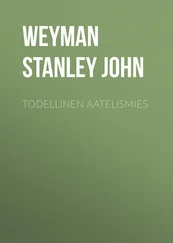Stanley Weyman - Chippinge Borough
Здесь есть возможность читать онлайн «Stanley Weyman - Chippinge Borough» — ознакомительный отрывок электронной книги совершенно бесплатно, а после прочтения отрывка купить полную версию. В некоторых случаях можно слушать аудио, скачать через торрент в формате fb2 и присутствует краткое содержание. Жанр: foreign_prose, на английском языке. Описание произведения, (предисловие) а так же отзывы посетителей доступны на портале библиотеки ЛибКат.
- Название:Chippinge Borough
- Автор:
- Жанр:
- Год:неизвестен
- ISBN:нет данных
- Рейтинг книги:4 / 5. Голосов: 1
-
Избранное:Добавить в избранное
- Отзывы:
-
Ваша оценка:
- 80
- 1
- 2
- 3
- 4
- 5
Chippinge Borough: краткое содержание, описание и аннотация
Предлагаем к чтению аннотацию, описание, краткое содержание или предисловие (зависит от того, что написал сам автор книги «Chippinge Borough»). Если вы не нашли необходимую информацию о книге — напишите в комментариях, мы постараемся отыскать её.
Chippinge Borough — читать онлайн ознакомительный отрывок
Ниже представлен текст книги, разбитый по страницам. Система сохранения места последней прочитанной страницы, позволяет с удобством читать онлайн бесплатно книгу «Chippinge Borough», без необходимости каждый раз заново искать на чём Вы остановились. Поставьте закладку, и сможете в любой момент перейти на страницу, на которой закончили чтение.
Интервал:
Закладка:
VI
THE PATRON OF CHIPPINGE
Much about the time that the "Spectator" was painting in Sir Roger the most lovable picture of an old English squire which our gallery contains, Cornelius Vermuyden, of a younger branch of the Vermuydens who drained the fens, was making a fortune in the Jamaica trade. Having made it in a dark office at Bristol, and being, like all Dutchmen, of a sedentary turn, he proceeded to found a family, purchase a borough, and, by steady support of Whig principles and the Protestant succession, to earn a baronetcy in the neighbouring county of Wilts.
Doubtless the first Vermuyden had things to contend with, and at assize ball and sessions got but two fingers from the De Coverleys and their long-descended dames. But he went his way stolidly, married his son into a family of like origin-the Beckfords-and, having seen little George II. firmly on the throne, made way for his son.
This second Sir Cornelius rebuilt Stapylton, the house which his father had bought from the decayed family of that name, and after living for some ten years into the reign of Farmer George, vanished in his turn, leaving Cornelius Robert to succeed him, Cornelius George, the elder son, having died in his father's lifetime.
Sir Cornelius Robert was something after the pattern of the famous Mr. Onslow-
What can Tommy Onslow do?
He can drive a chaise and two.
What can Tommy Onslow more?
He can drive a chaise and four.
Yet he fitted the time, and, improving his father's pack of trencher-fed hounds by a strain of Mr. Warde's blood, he hunted the country so conscientiously that at his death a Dutch bottle might have been set upon his table without giving rise to the slightest reflection. He came to an end, much lamented, with the century, and Sir Robert, fourth and present baronet, took over the estates.
By that time, rid of the foreign prenomen, well allied by three good marriages, and since the American war of true blue Tory leanings, and thorough Church and King principles, the family was able to hold up its head among the best in the south of England. There might be some who still remembered that-
Saltash was a borough town
When Plymouth was a breezy down.
But the property was good, the borough safe, and any time these twenty years their owner might have franked his letters "Chippinge" had he willed it. As it was, he passed, almost as much as Mr. Western in the east or Sir Thomas Acland in the west, for the type of a country gentleman. The most powerful Minister gave him his whole hand; and at county meetings, at Salisbury or Devizes, no voice was held more powerful, nor any man's hint more quickly taken than Sir Robert Vermuyden's.
He was a tall and very thin man, of almost noble aspect, with a nose after the fashion of the Duke's, and a slight stoop. In early days he had been something of a beau, though never of the Prince's following, and he still dressed finely and with taste. With a smaller sense of personal dignity, or with wider sympathies, he might have been a happier man. But he had married too late-at forty-five; and the four years which followed, and their sequel, had darkened the rest of his life, drawn crow's-feet about his eyes and peevish lines about his mouth. Henceforth he had lived alone, nursing his pride; and the solitude of this life-which was not without its dignity, since no word of scandal touched it-had left him narrow and vindictive, a man just but not over-generous, and pompous without complacency.
The neighbourhood knew that he and Lady Sybil-he had married the beautiful daughter of the last Earl of Portrush-had parted under circumstances which came near to justifying divorce. Some held that he had divorced her; but in those days an Act of Parliament was necessary, and no such Act stood on the Statute-book. Many thought that he ought to have divorced her. And while the people who knew that she still lived and still plagued him were numerous, few save Isaac White were aware that it was because his marriage had been made and marred at Bowood-and not purely out of principle-that Sir Robert opposed the very name of Lansdowne, and would have wasted a half of his fortune to wreck his great neighbour's political power.
Not that his Tory principles were not strong. During five Parliaments he had filled one of his own seats, and had spoken from time to time after a dignified fashion, with formal gestures and a copious sprinkling of classical allusions. The Liberal Toryism of Canning had fallen below his ideal, but he had continued to sit until the betrayal of the party by Peel and the Duke-on the Catholic Claims-drove him from the House in disgust, and thenceforth Warren's Hotel, his residence when in town, saw him but seldom. He had fancied then that nothing worse could happen; that the depths were plumbed, and that he and those who thought with him might punish the traitor and take no harm. With the Duke of Cumberland, the best hated man in England-which was never tired of ridiculing his moustachios-Eldon, Wetherell, and the ultra-Tories, he had not rested until he had seen the hated pair flung from office; nor was any man more surprised and confounded when the result of the work began to show itself. The Whigs, admitted to power by this factious movement, and after an exile so long that Byron could write of them-
Naught's permanent among the human race
Except the Whigs not getting into place
-brought in no mild and harmless measure of reform, promising little and giving nothing, such as foe and friend had alike expected; but a measure of reform so radical that O'Connell blessed it, and Cobbett might have fathered it: a measure which, if it passed, would sweep away Sir Robert's power and the power of his class, destroy his borough, and relegate him to the common order of country squires.
He was at first incredulous, then furious, then aghast. To him the Bill was not only the doom of his own influence but the knell of the Constitution. Behind it he saw red revolution and the crash of things. Lord Grey was to him Mirabeau, Lord John was Lafayette, Brougham was Danton; and of them and of their kind, when they had roused the many-headed, he was sure that the end would be as the end of the Gironde.
He was not the less furious, not the less aghast, when the moderates of his party pointed out that he had himself to thank for the catastrophe. From the refusal to grant the smallest reform, from the refusal to transfer the franchise of the rotten borough of Retford to the unrepresented city of Birmingham-a refusal which he had urged his members to support-the chain was complete; for in consequence of that refusal Mr. Huskisson had left the Duke's Cabinet. The appointment of Mr. Fitzgerald to fill his seat had rendered the Clare election necessary. O'Connell's victory at the Clare election had converted Peel and the Duke to the necessity of granting the Catholic Claims. That conversion had alienated the ultra-Tories, and among these Sir Robert. The opposition of the ultra-Tories had expelled Peel and the Duke from power-which had brought in the Whigs-who had brought in the Reform Bill.
Hinc illæ lacrimæ! For, in place of the transfer of the franchise of one rotten borough to one large city-a reform which now to the most bigoted seemed absurdly reasonable-here were sixty boroughs to be swept away, and nearly fifty more to be shorn of half their strength, a Constitution to be altered, an aristocracy to be dethroned!
And Calne, Lord Lansdowne's pocket borough, was spared!
Sir Robert firmly believed that the limit had been fixed with an eye to Calne. They who framed the Bill, sitting in wicked, detestable confabulation, had fixed the limit of Schedule B so as to spare Calne and Tavistock- Arcades ambo , Whig boroughs both. Or why did they just escape? In the whole matter it was this, strangely enough, which troubled him most sorely. For the loss of his own borough-if the worst came to the worst-he could put up with it. He had no children, he had no one to come after him except Arthur Vaughan, the great-grandson of his grandmother. But the escape of Calne, this clear proof of the hypocrisy of the righteous Grey, the blatant Durham, the whey-faced Lord John, the demagogue Brougham-this injustice kept him in a state of continual irritation.
Читать дальшеИнтервал:
Закладка:
Похожие книги на «Chippinge Borough»
Представляем Вашему вниманию похожие книги на «Chippinge Borough» списком для выбора. Мы отобрали схожую по названию и смыслу литературу в надежде предоставить читателям больше вариантов отыскать новые, интересные, ещё непрочитанные произведения.
Обсуждение, отзывы о книге «Chippinge Borough» и просто собственные мнения читателей. Оставьте ваши комментарии, напишите, что Вы думаете о произведении, его смысле или главных героях. Укажите что конкретно понравилось, а что нет, и почему Вы так считаете.












